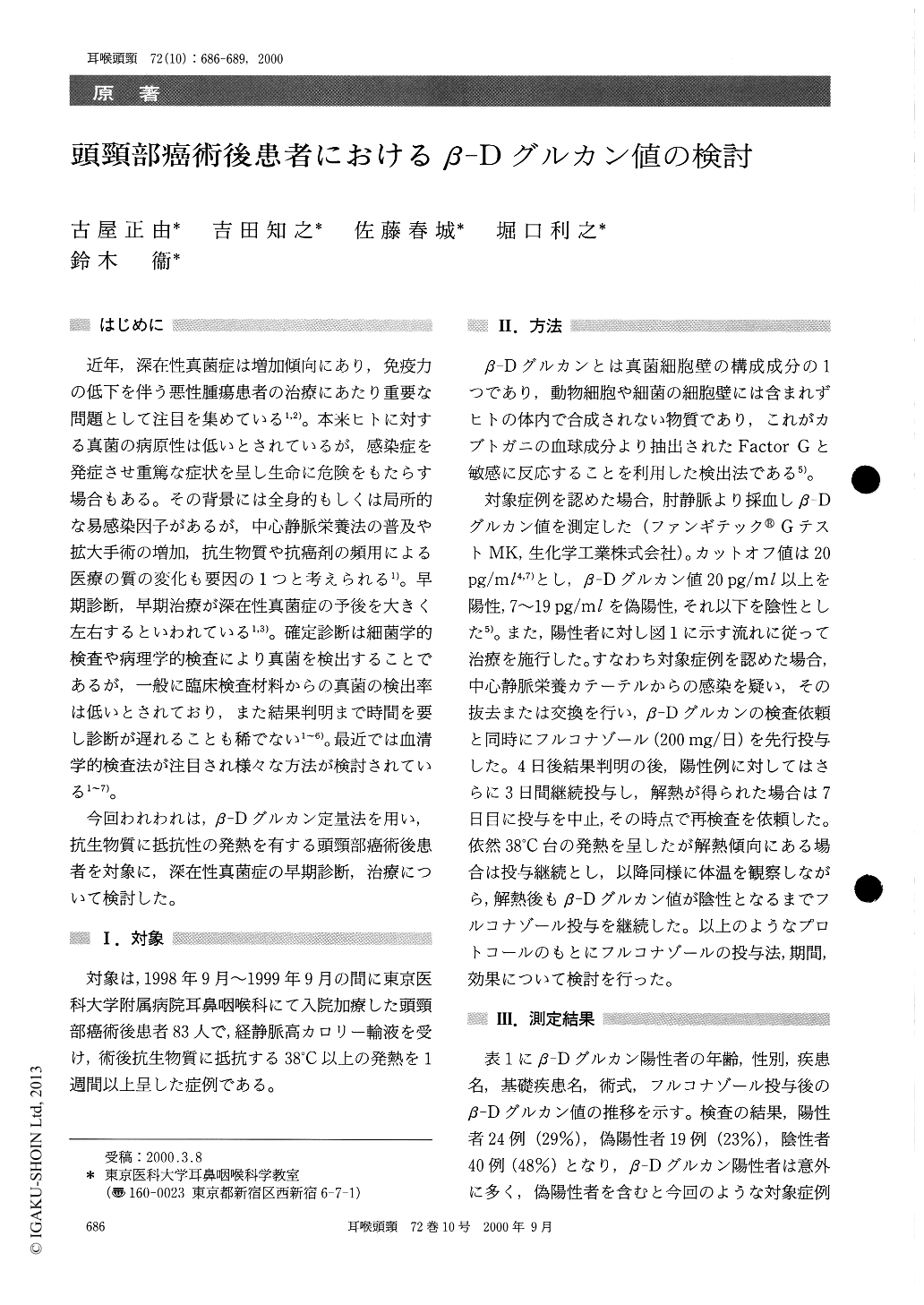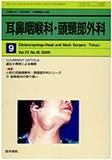Japanese
English
- 有料閲覧
- Abstract 文献概要
- 1ページ目 Look Inside
はじめに
近年,深在性真菌症は増加傾向にあり,免疫力の低下を伴う悪性腫瘍患者の治療にあたり重要な問題として注目を集めている1,2)。本来ヒトに対する真菌の病原性は低いとされているが,感染症を発症させ重篤な症状を呈し生命に危険をもたらす場合もある。その背景には全身的もしくは局所的な易感染因子があるが,中心静脈栄養法の普及や拡大手術の増加,抗生物質や抗癌剤の頻用による医療の質の変化も要因の1つと考えられる1)。早期診断,早期治療が深在性真菌症の予後を大きく左右するといわれている1,3)。確定診断は細菌学的検査や病理学的検査により真菌を検出することであるが,一般に臨床検査材料からの真菌の検出率は低いとされており,また結果判明まで時間を要し診断が遅れることも稀でない1〜6)。最近では血清学的検査法が注目され様々な方法が検討されている1〜7)。
今回われわれは,β-Dグルカン定量法を用い,抗生物質に抵抗性の発熱を有する頭頸部癌術後患者を対象に,深在性真菌症の早期診断,治療について検討した。
Mycosis profunda has increased in recent years. This arouses an attention in treating malignancy cases that frequently accompany with compromisedimmunity. Eighty three patients with malignant head and neck tumors underwent intravenous high caloric infusion after surgery. β-D glucan value was measured for the purpose of diagnosing mycosis profunda infection. Among these, 24 showed posi-tive reaction. When mycosis profunda was suspect-ed, the catheter was removed and fluconazole was given in advance, and the β-D glucan value turned to negative and symptoms improved.

Copyright © 2000, Igaku-Shoin Ltd. All rights reserved.


